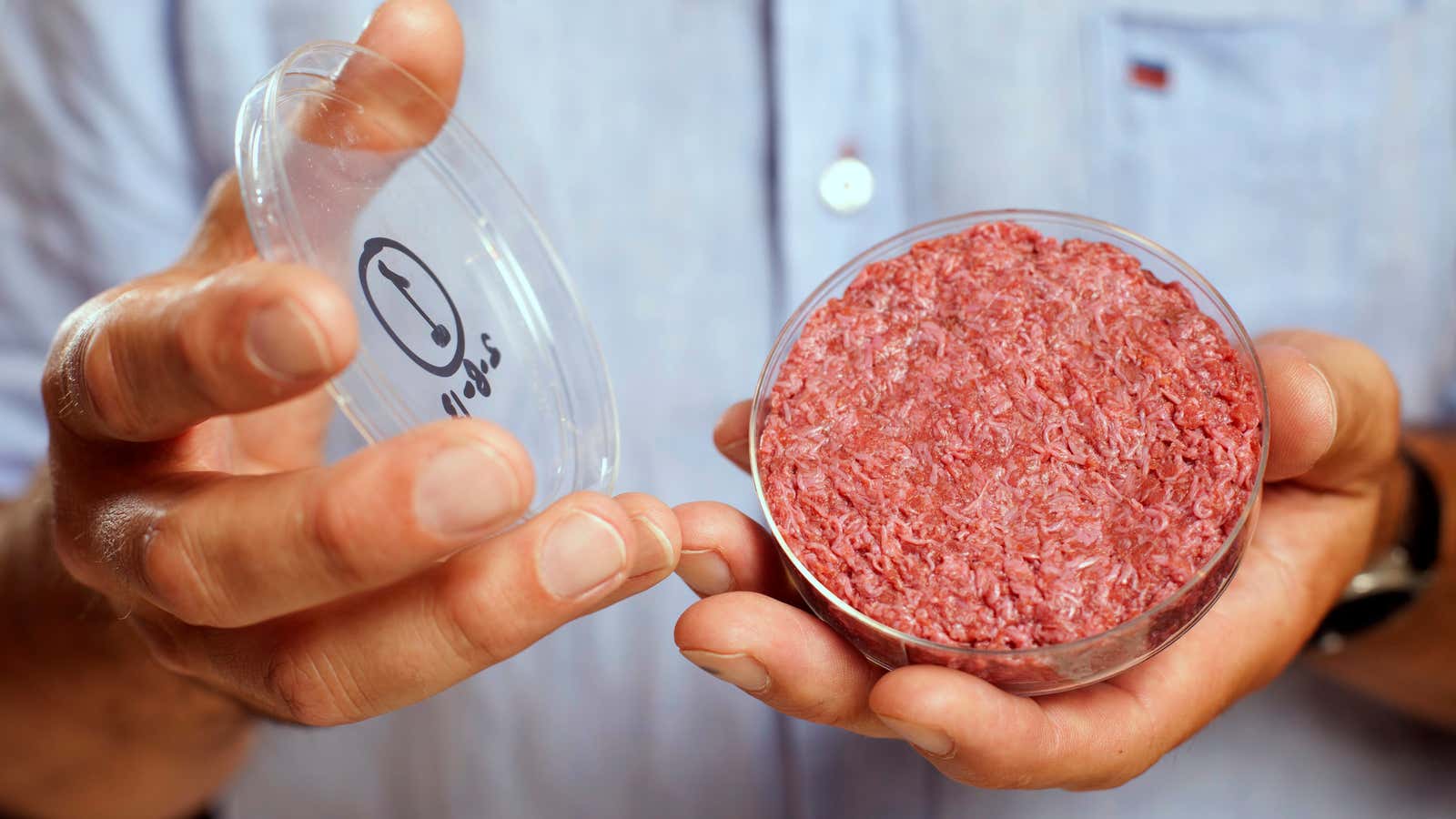The leading innovators behind the United States’ cell-cultured meat and fish companies are joining forces to push their new food technology into the mainstream.
Five companies today (Aug. 29) announced the group—called the Alliance for Meat, Poultry, and Seafood Innovation—describing it as a step toward speaking as an industry with a unified voice. The group will lobby on behalf of cell-based meat interests in Washington, DC, drive efforts to educate the public about their new foods, and serve as a place for its member companies to exchange ideas.
The founding five members include JUST, Memphis Meats, Finless Foods, BlueNalu, and Fork and Goode. For the last year, representatives from these companies have met once a week to discuss the issues they face; creating an organization makes the collaboration official.
The group’s creation is an important milestone in the cell-cultured meat space for two reasons. First, it’s a signal that cell-culturing technology—which creates real meat by growing cells from animals, eliminating the need to slaughter them—is close to a point where it can be introduced to the wider consumer market. Companies are already growing and serving up their foods in select, in-house taste tests, but scaling up and creating enough meat to supply the larger market remains elusive.
Second, it shows a concerted effort to overcome any remaining regulatory barriers and show federal food authorities that cell-cultured products and processes meet the safety requirements expected from the rest of the food industry. Currently, there is no process in place to ensure the process of making cell-cultured meat for market follows existing federal mandates. The new group hopes to work with government regulators to answer their questions and work together to create a pathway to market.
Until now, cell-cultured meat companies have relied on the DC-based non-profit, The Good Food Institute, to represent their interests. That organization serves as a big tent for plant-based and high-tech vegan food interests. But the shift to an alliance comprised solely of cell-cultured meat companies creates a single voice for a burgeoning industry that finds itself increasingly in the public imagination.
“We need to separate fact from fiction,” says Andrew Noyes, spokesman for San Francisco-based JUST. “We need to talk to folks who are consumers and folks on the hill…about the industry and the products that we hope to bring to market, that they will be safe and transparent.”
Establishing that kind of communication with regulators and everyday eaters is only becoming more important as the scientists behind these companies push their field forward.
“This industry is maturing and is a lot more near-term than was thought of in the last year or in the past,” says Lou Cooperhouse, CEO of BlueNalu, which makes cell-cultured fish. “This is not something that is 10 years away. It is something that is short-term.”
For now, the alliance is a distinctly American effort.
It doesn’t currently include prominent foreign cell-cultured meat startups such as Aleph Farms or Future Meat Technologies in Israel, Mosa Meat in the Netherlands, or Integriculture from Japan. Members of the new alliance say they are open to adding new companies to their ranks.
